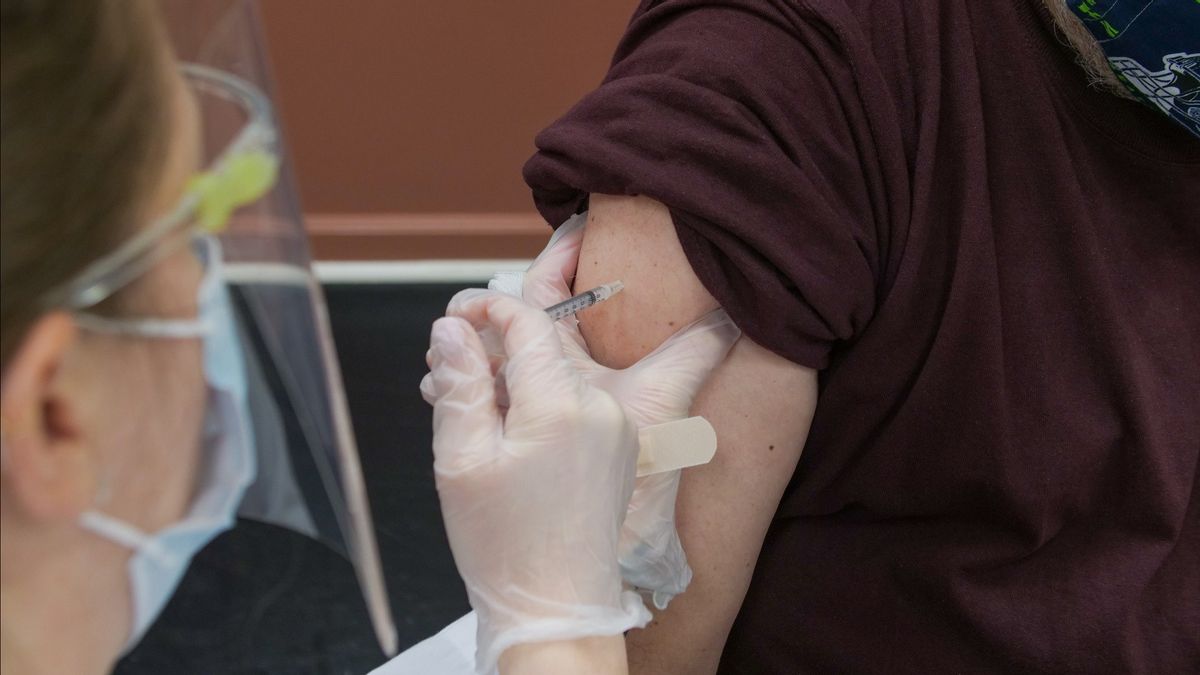JAKARTA - The World Health Organization (WHO) and immunologists have denied claims that the COVID-19 vaccine causes a new variant of the coronavirus.
This denial was issued following the circulation of claims that people who have been vaccinated are more likely to infect other people with the super strain of the coronavirus. This claim is rife in France.
WHO and other immunologists say that these claims are baseless and have no scientific basis.
"There is no evidence about this. Vaccination is part of the solution to suppress transmission along with existing public health measures", a WHO spokesman told Euronews.
Misinformation online about the coronavirus and vaccines has become a thorn for European governments and their inoculation strategies.
A March poll by Ipsos found only 59 percent of adults in France would be willing to take a COVID-19 vaccination. Meanwhile, in Spain, the figure reached 82 percent and in Italy 85 percent.
"The number one message is, get a vaccine because it will stop the virus. Any kind of suggestion that a vaccine makes things completely worse is the opposite message to be given", said Professor Luke O'Neill, an immunologist at Trinity College Dublin.
"This is an emergency, we have to get as many people vaccinated as possible to stop the emerging variant and stop the spread of the virus", added O'Neill.

Misinformation has spread online since last week, with several French social media accounts claiming, without evidence, the COVID-19 vaccine caused the emergence of a variant of the virus.
Several pages share a link to an article, which states that vaccinated citizens are a walking bacteriological time bomb and a threat to society.
The article then falsely alleges that vaccinated people are most likely to infect other people with the super strain. The theory has been shared on various Facebook and Twitter pages, such as in Lyon and Nice, as well as across the border to Switzerland.
One Twitter account filing the same bogus claim has more than 6,300 followers. Meanwhile, the Facebook page that shares article content has more than 33,000 likes and 52,000 followers.
But WHO, which has been tracking virus mutations and variants since the start of the COVID-19 outbreak, has reiterated that there is no evidence to support the article's claims.
"Vaccines will reduce viral replication, not cause variants", said Prof. O'Neill.
Prof O'Neill said the emergence of virus variants was a random process. Variant behavior not associated with the COVID-19 vaccine, on the other hand, can originate when the virus is contagious and spreads.
It is known that several new variants of the coronavirus currently exist, among others, from South Africa, Brazil, and England.
"Every time the virus divides and makes copies of itself, it makes small mistakes, and there's a chance this error could be more troublesome", he said.
"Vaccines unleash the human immune system to kill the virus, which stops replicating and therefore the likelihood of variants emerging is reduced. Vaccines increase the immune response so that the variants do not appear in people who are vaccinated at all, the more likely they are to appear in people who have no immune response", he explained.
Pointing to the flu vaccine, Prof O'Neill said no vaccine has ever been known to drive evolutionary change and lead to more dangerous variants.
In a statement to Euronews, WHO also reiterated that the vaccine will reduce the spread of new virus strains.
"When viruses, including SARS-CoV-2, circulate widely in a population and cause multiple infections, the likelihood of the virus mutating increases", said a WHO spokesman.
He added that the more opportunities the virus has to spread, the more it will replicate, the more opportunities it has to experience change.
"Launching the vaccine as quickly and widely as possible is very important to protect people before they are exposed to the virus and the risk of new variants", he concluded.
The English, Chinese, Japanese, Arabic, and French versions are automatically generated by the AI. So there may still be inaccuracies in translating, please always see Indonesian as our main language. (system supported by DigitalSiber.id)









